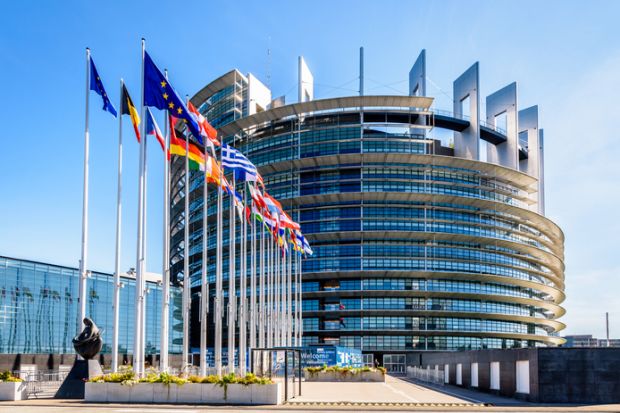Handing greater powers over higher education to Brussels might not be necessary to foster improved cross-border collaboration, sector representatives said.
The European Council is expected to vote next month on whether to adopt “shared competence” over education, which would allow the bloc to pass binding legislation. The European Parliament voted narrowly in favour of shared competence on 22 November.
Member states currently have sole legislative responsibility for education, but a change in the rules could clear the way for improved mutual recognition of degrees and further attempts to protect academic freedom.
The Bologna Process, launched in 1999, has led to greater alignment between European degrees, but remains a voluntary initiative. The creation of a European Education Area in 2017 was designed to turbocharge mutual recognition of qualifications to the extent that cross-border “European” universities and degrees could be created – but the scheme has consistently come up against the barrier of varying national regulations.
“It’s because things cannot be done just on a voluntary basis, there must be coordination and responsibility at a European level,” German MEP Sabine Verheyen told Science|Business ahead of the European Parliament vote.
However, Ole Petter Ottersen, acting secretary-general of the Guild of European Research-Intensive Universities, told Times Higher Education that the issue of shared competence was “very complicated”.
“We don’t have any clear solution to how competence and decisive power should be shared between member states and the EU thus far,” he said.
Professor Ottersen raised the prospect of a joint European degree, a central ambition of the European Education Area, to illustrate the barriers to cross-border education. “Different member states have different approaches to education and different quality criteria, but at the same time many member states and many universities want to see an increased collaboration when it comes to joint degrees,” he said.
“What the sector certainly needs is strong political commitment of member states to remove existing obstacles. Cooperation between national authorities, universities and the European Commission on issues such as quality assurance and recognition is needed.”
Anna-Lena Claeys-Kulik, the European University Association’s deputy director for policy coordination and foresight, said the parliament’s proposal indicated “an awareness that “universities still have challenges after 20 years of the Bologna Process”, but whether a shared EU competence would help with that would depend on how it is used. “In any case member states would need to agree.
“It’s a very positive development if MEPs give more attention to the concerns of universities, but we have to discuss what solutions could be found together,” she told THE. “Before inventing new things, we could start with implementing what’s already there.
“If the EU can help to push member states to better implement Bologna Process tools that they have already accepted at a ministerial level, that’s of course a good thing, but that could be done within the current system.”
Change at the national level was essential to facilitate transnational collaboration, Ms Claeys-Kulik said. “National governments need to try to make their systems more flexible,” she said. “Whether we have a shared EU competence or not, it doesn’t prevent member states from becoming active in reforming their national systems.”
Professor Ottersen suggested Europe look to the alliances forged by the European Universities Initiative for a potential way forward. “The university alliances initiative is a living experiment that eventually may lead us to a better understanding of how to optimally divide power between EU institutions and member states,” he said.




